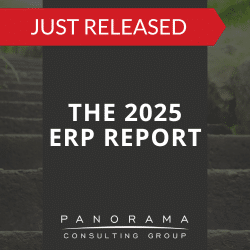Oracle and Google Cloud recently embarked on a strategic partnership that marks a shift in the cloud computing landscape. This collaboration promises to deliver new capabilities to enterprises, particularly when it comes to handling AI workloads.
The partnership also marks a significant step in the evolving multi-cloud ecosystem.
A Surprising Alliance: Oracle and Google Cloud
For those familiar with the history between Oracle and Google, this partnership might seem unexpected. The two companies have previously faced off in court over issues related to Android and Java.
However, there was a strong driving force behind this recent alliance: the growing demand for interconnected cloud services.
The Scope of the Partnership
The Oracle-Google Cloud collaboration aims to integrate Oracle Cloud Infrastructure (OCI) with Google Cloud services, initially across 11 global regions.
Oracle database services will be deployed directly within Google Cloud data centers, allowing Google Cloud’s AI offerings to be utilized with reduced latency. This means customers can deploy general-purpose workloads without incurring data transfer charges.
For Google Cloud, this partnership embeds its AI capabilities deeper into enterprise applications, enhancing its market reach and customer value proposition.
Industry Implications
This partnership reflects a broader trend in the tech industry towards multi-cloud strategies (i.e., integrating cloud services across different platforms).
This trend is gaining traction because it offers significant advantages in terms of performance, cost, and flexibility.
For example, a financial services company struggling with regulatory compliance and data integration might adopt a multi-cloud environment to improve compliance measures and ensure effective data management.
The 2025 Top 10 ERP Systems Report
What vendors are you considering for your ERP implementation? This list is a helpful starting point.
Benefits for Organizations Considering Digital Transformation
The Oracle-Google Cloud partnership is poised to deliver several key benefits for enterprises:
1. Unified Experience
Joint customers will benefit from a seamless experience, with support and services available from both Oracle and Google Cloud. This includes the ability to move data across the two platforms and access Exadata and Autonomous Database through Google Cloud.
2. Enhanced AI Capabilities
By leveraging Google’s AI technologies, enterprises can integrate advanced AI services into their existing Oracle database infrastructure. This means companies can access cutting-edge machine learning models to enhance their data analysis and decision-making processes.
(Not using Oracle software? Many of the top ERP systems feature advanced AI capabilities and integrations, as well.)
3. Cost Efficiency
The Oracle-Google Cloud collaboration aims to eliminate data transfer fees, making it more cost-effective for enterprises to manage and utilize their cloud resources. This is particularly beneficial for large-scale AI training and deployment, which require significant computing power.
(Learn about AI in ERP.)
4. Scalability and Flexibility
Enterprises can scale their operations seamlessly across both cloud platforms, utilizing the best features and capabilities of each. This flexibility is crucial for businesses looking to adapt quickly to changing market demands and technological advancements.
Considerations for Organizations Adopting Multi-Cloud Strategies
As businesses seek to leverage the strengths of different cloud providers, they must consider risks, such as data breaches and unexpected costs. To mitigate these risks, we recommend focusing on the following areas:
1. Integration and Interoperability
Ensuring seamless integration between different cloud platforms is crucial. Companies need to invest in technologies and services that facilitate interoperability and data movement across clouds.
For example, if an ERP system is cloud-based and connected to multiple data sources, a company might consider using an integration platform as a service (iPaaS) to enable seamless data exchange and workflow automation.
2. Cost Management
Managing costs effectively across multiple cloud providers can be challenging. Companies should leverage tools and services that provide visibility and control over their cloud spending.
3. Security and Compliance
Multi-cloud environments introduce additional complexity in terms of security and compliance. Companies must implement robust security measures and ensure compliance with relevant regulations across all cloud platforms.
The Role of Independent Consultants
As the complexity of managing multi-cloud environments increases, the role of independent consultants becomes increasingly critical. Vendor-agnostic guidance is unique in its focus on a company’s long-term goals rather than the consulting firm’s financial ties with select vendors.
Contact our independent ERP consultants today to learn how to select and implement enterprise software. Our list of ERP systems is also worth exploring.













